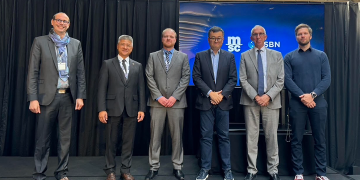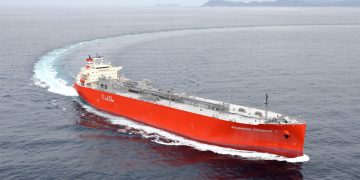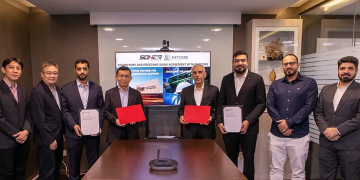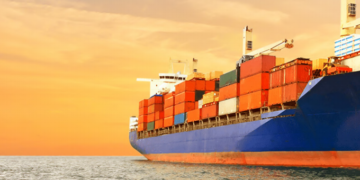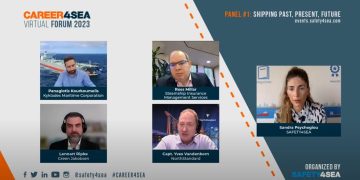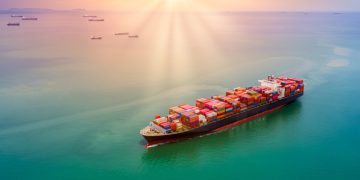John Sypnowich, Chief Legal and Compliance Officer of The CSL Group Inc & Chair of MACN, explains how shipping industry has taken the lead on the fight against corruption towards sustainable trade. Mr. Sypnowich introduces the many initiatives under the MACN scheme highlighting that although there are numerous regions, countries and ports where corruption remains a major issue, the overall trend is positive, rather than worrying. Mr. Sypnowich also emphasizes that only through collective action there is chance to promote trade and transparency; which actually the concept behind MACN is. In this respect, MACN has also developed an anonymous incident reporting system to target collective action efforts and engage with governments.
Regulation is vital to tackling corruption. But action must go beyond writing new or more laws
SAFETY4SEA: How did the need for the MACN emerge? What further benefits does this network provide to the industry?
John Sypnowich: MACN was established in 2011 as an industry-led collective action initiative, to stamp out corruption in the maritime industry and to promote inclusive trade. Having now grown to over 90 companies across the maritime industry, MACN’s members represent a significant percentage of the total global tonnage and play a key role in ocean transport.
Since its inception, MACN has become one of the preeminent examples of an industry led network taking tangible collective action to eliminate corruption across the wider supply chain. By working in partnership with the industry, governments, and civil society we have been successful in tackling corruption through country-specific actions in a range of locations.
MACN’s initiatives have been welcomed by these stakeholders and have resulted in tangible outcomes such as enhanced container tracking in Indonesia, a new regulatory framework for the dry-bulk vessel clearance process in Argentina, ethics training for 1500 port officials and other maritime players in Argentina, Nigeria and Indonesia, and a successful Say No campaign in the Suez Canal.
S4S: Which are the hot spots for corruption in maritime industry? Have you noticed any worrying trend during the last 5 years?
J.S.: MACN’s collective actions in Nigeria, Indonesia, Egypt, and Argentina are a good indication of areas where corruption has a well-known and detrimental impact on vessel operations and the welfare of crew. In addition, MACN has started to map a potential collective action with the government of India and has gained support for the project from local Indian stakeholders. However, there are numerous other regions, countries, and ports where corruption is still an issue and where MACN is looking at the potential of collective action programs and trainings.
From our point of view, the overall trend is positive, rather than worrying. There is increased global recognition and regulation of the impact of corrupt practices; there is far less community tolerance for this sort of behavior; and shipping – so often a disparate and competitive community – has banded together to cooperate in fighting corruption.
S4S: In your view, is the current regulatory framework satisfactory to reduce corruption risks? What could be done to move forward?
J.S.: Regulation at the international, national, local government, and corporate levels is vital to tackling corruption. Where there is legal and policy ambiguity there is room to abuse the system. But action must go beyond writing new or more laws.
Even if all companies have an internal defense against unethical practices, these challenges will continue to exist as long as the root causes of corruption go unaddressed. Collective Action is an important tool to help the private sector take proactive steps to tackle corruption, with companies joining forces and engaging governments and civil society as a group. In MACN collective action projects, member companies unite with stakeholders including port and customs authorities, NGOs, and local governments to undertake root cause analyses and then implement a range of “recommended actions” to tackle corruption in ports and across the maritime supply chain. The essence of the MACN collective action approach is that successful, lasting, changes in the operating environment will take effect only if they are enabled, supported, and beneficial to key stakeholders.
Through collective action, MACN members work in partnership with local authorities to develop solutions which are both beneficial to all and realistic to implement. MACN also recognizes that collective actions can have a positive impact well beyond our own industry—due to the volume of world trade that passes through ports. Anti-corruption initiatives targeting ports can have a positive outcome for a wide range of industries across the supply chain and for society as a whole.
S4S: What is the overall situation with respect to corruption figures? Is the number lower or under reported? From your experience, how can the industry mitigate the actual corruption?
J.S.: Accurate data on illegal practices is notoriously hard to collect, and maritime corruption is no different. But because data plays such an important part in scoping the problem and developing actions plans it is vital that we collect as much information as possible. To achieve this MACN has developed an anonymous incident reporting system.
This incident reporting system enables maritime players to submit reports on corrupt demands they have faced during port operation. The outputs of the anonymous incident reporting allow members to learn from each other to potentially avoid similar incidents in their own operations. The use of the mechanism has significantly increased over the years. To date, MACN has collected over 19,000 reports of corrupt demands globally. MACN uses this data to analyze trends in frequency of incidents, allowing MACN to target collective action efforts and engage with governments. It has been a successful way to facilitate a constructive dialogue in meetings with governments and other stakeholders. Reporting is anonymous and non-attributable: It is not possible for anyone to identify who has submitted a report, and the incident does not include details that would identify specific dates, ships, or individuals.
MACN has developed an anonymous incident reporting system which has collected over 19,000 reports of corrupt demands globally
S4S: What is your key message to industry stakeholders towards Anti-Corruption, fair trade and Ethics?
J.S.: Our message to the industry is simple: You don’t have to accept corruption as an inevitability; you are not alone; and if we work together we will succeed. Our industry led collective approach has proven to be an impactful, effective, and cost-efficient way to promote trade and transparency and to drive private sector leadership on combating corruption in the ports and maritime sector. Shipping has taken the lead on the fight against corruption, and the more of us involved the sooner we will win.
The views presented hereabove are only those of the author and not necessarily those of SAFETY4SEA and are for information sharing and discussion purposes only.
 John Sypnowich is Chief Legal and Compliance Officer of The CSL Group Inc. In this role, he is responsible for the legal, risk and compliance functions for the company and a member of the Executive Committee.
John Sypnowich is Chief Legal and Compliance Officer of The CSL Group Inc. In this role, he is responsible for the legal, risk and compliance functions for the company and a member of the Executive Committee.
The CSL Group Inc. is a Canadian based company headquartered in Montreal with offices in London (United Kingdom), Boston (USA), Sydney (Australia), Bergen (Norway), Singapore, Vancouver, Halifax, Winnipeg and Burlington (Canada), The company specializes in the operation of self-unloading bulk carriers with inland and deep-sea trading capabilities. It employs approximately 1,000 people of which, more than 500 are employed in its various Canadian operations.
John is also Chair of the Maritime Anti-Corruption Network, a global business network working towards eliminating corruption in the maritime industry.
Prior to joining CSL in 2008, John occupied a senior legal role with a major Canadian company and worked in private practice with a law firm in Montreal. John is a member of the Quebec bar and holds a B.A. from the University of Toronto, an LLB and BCL from McGill University and a certificate in executive management from the Wharton School of the University of Pennsylvania.







